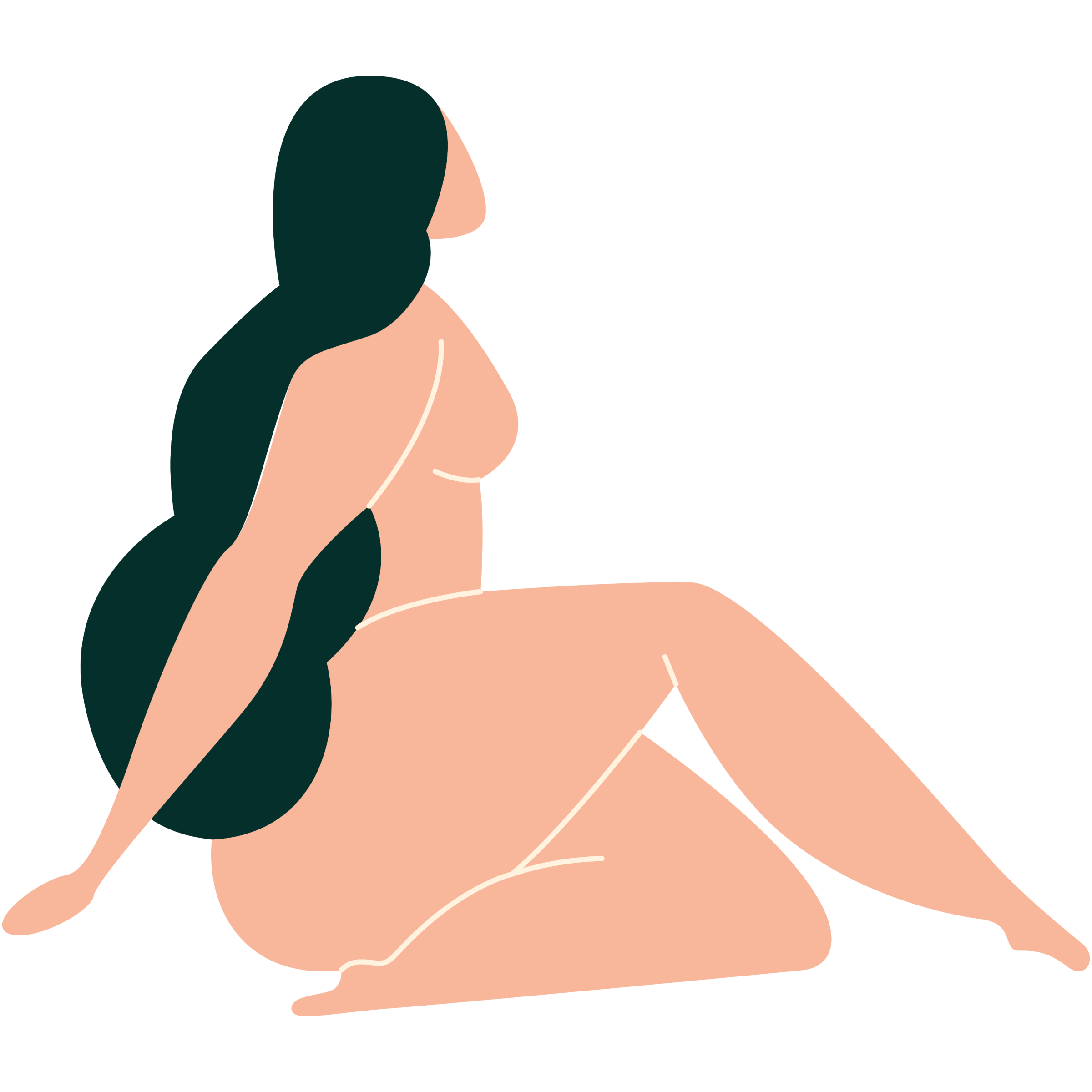
Body
Get to know your body through a better understanding of your anatomy and find the answers to some of your most common questions.

It all starts with innocent curiosity—a little girl touches her vulva, only to be met with horror by her mother. “3eib,” the girl is scolded, her hands quickly moving away from her “susu” or “lulu” or any other nickname chosen for this untouchable part of her body.
Young girls are confused by this reaction. They're caught in a whirlwind of fear and shame. Some bury it deep inside, while others sneak away to explore in secret, away from accusing eyes.
This is often our first introduction to shame, the beginning of a downward spiral, and the start of a lifetime of conflicting emotions. There, at the intersection of pleasure and 3eib, we struggle to make sense of it all.
These early experiences shape how many of us perceive our bodies and sexuality. As we grow older, those feelings are compounded by a lack of education. Schools avoid the subject entirely. Young boys and girls whisper about sex and sexuality, but these topics are never addressed by adults or scientifically explained by teachers.
By the time we’re old enough to navigate society or explore the internet, we can’t distinguish fact from fiction. We don’t even know what’s between our legs because we’ve never dared to look – actually look – at our own bodies.
Somehow, we mistook ignorance for protection, but it backfired. We fell prey to predators because nobody taught us how to say “no.” No one explained to us what it means when a cousin asks us to sit on his lap and it makes us uncomfortable or when an uncle tells us not to tell anyone about “our little secret.”
These issues are more prevalent than we realize, and our society keeps them well hidden beneath layers of shame and silence. If you see parts of your own story in this, know that you are not alone. If you’re ready to end this cycle and reclaim the narrative around our bodies, know that it is possible.
It all starts with unlearning and relearning what we’ve been taught about pleasure, joy, and desire. Go back to those early moments when a parent recoiled in horror at your childish curiosity; reach out to that little girl to hold her hand, and assure her that her curiosity was healthy and perfectly normal.
One powerful way to navigate this is through self-discovery and self-pleasure. By taking the time to explore your own body and understand its sensations, you reclaim your autonomy, your agency, and your right to pleasure.
Here’s how this can be a powerful act of social change.
When you engage in self-discovery and self-pleasure, you directly challenge the patriarchal notion that a woman's body is not her own.
Your body is yours to understand, enjoy, and care for. It dismantles the idea that your sexuality and bodily autonomy are subjects to be dictated by anyone else.
Knowing your body better also empowers you to make informed decisions about what's good for you.
You’re no longer waiting for someone to tell you what you should or shouldn't do with your own body. This self-awareness means you're not sitting around dreaming about how someone else might give you love, joy, and pleasure—you’re able to give it all to yourself.
Self-sufficiency is transformative; it means you will make better decisions about the people you choose to be with. They won't have as much of a grip on you because you won’t need them to define your worth. You are in control, and that makes all the difference.
The beauty and wellness industries are known to exploit our insecurities, profiting from products and services that promise to "fix" our perceived flaws.
These industries thrive on making us believe that we’re not enough as we are, constantly pushing the narrative that we need their products to be beautiful, desirable, and worthy.
When you learn about your body, what makes it unique, and what gives it power, you learn to appreciate and love yourself as you are and reject this narrative.
Instead, you focus on celebrating your body as it is. This rejection of capitalist pressures helps to diminish the power these industries hold over our self-esteem and self-worth.
When you engage in self-discovery and self-pleasure, you learn to view your body and its responses with curiosity and respect, rather than guilt and embarrassment.
This shift in perspective is powerful, not just for you but for the next generation as well.
Your journey of self-love sets an example for younger women and girls. They see you valuing yourself and your body, and they learn to do the same. They grow up seeing women who are confident in their own skin, who aren't ashamed of their bodies, and who understand the importance of pleasure and self-care.
Understanding and loving your own body is the first step to building a future where female sexuality is celebrated rather than shamed. Let this be the start of a journey toward self-discovery, empowerment, and unapologetic pleasure.
Disclaimer: We understand that self-pleasure can be a deeply sensitive and triggering experience for many women who have been subjected to abuse. If you find this aspect of self-care difficult, we want you to know that it's okay to take your time and seek support from professionals who understand and respect your journey.
Arabic word for “shame”. It’s often used to impose a set of socially mandated behaviors and expectations.
Did you find the answer you were looking for? Is there something we missed? What did you think of this resource? We want to hear from you.
